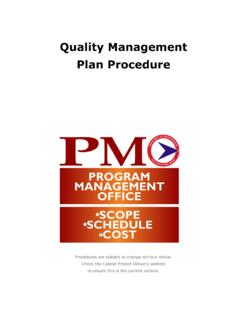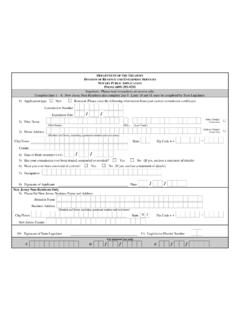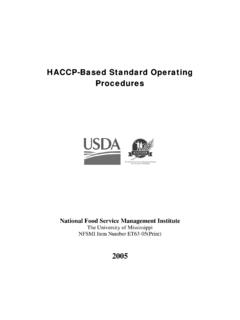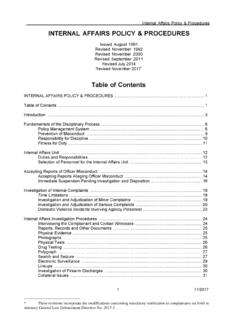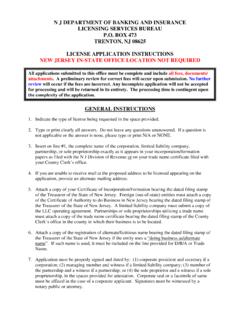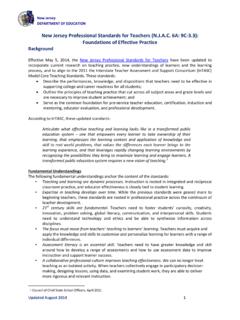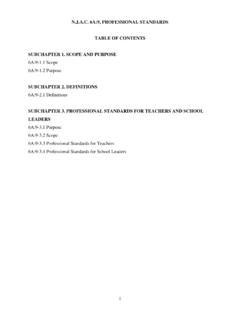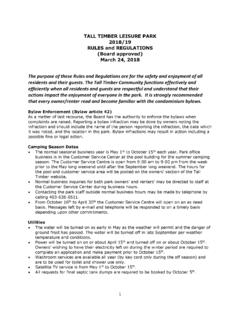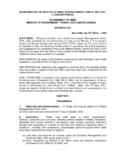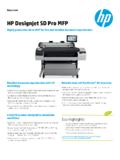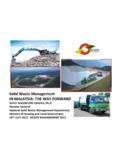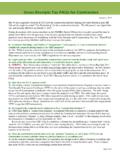Transcription of State of New Jersey Commission of Investigation
1 State of New Jersey Commission of Investigation CIRCUMVENTION OF OVERSIGHT INDUSTRIOUS SUBVERSION IN SOLID WASTE AND recycling IN NEW Jersey December 2011 State of New Jersey Commission of Investigation INDUSTRIOUS SUBVERSION CIRCUMVENTION OF OVERSIGHT IN SOLID WASTE AND recycling IN NEW Jersey SCI 28 West State St. Box 045 Trenton, 08625-0045 609-292-6767 State of New Jersey Commission OF Investigation 28 WEST State STREET PO Box - 045 TRENTON, NEW Jersey 08625-0045 Tel (609) 292-6767 Fax (609) 633-7366 New Jersey Is An Equal Opportunity Employer ~ Printed on Recycled and Recyclable Paper PATRICK E. HOBBS CHAIR ROBERT J.
2 MARTIN TODD R. CALIGUIRE Commissioners PHILIP JAMES DEGNAN Executive Director December 2011 Governor Chris Christie The President and Members of the Senate The Speaker and Members of the General Assembly The State Commission of Investigation , pursuant to 52:9M, herewith formally submits the final report of findings and recommendations stemming from an Investigation into the circumvention of oversight in solid waste and recycling in New Jersey . Respectfully, Patrick E. Hobbs Chair Robert J. Martin Todd R. Caliguire Commissioner Commissioner TABLE OF CONTENTS Executive Summary.
3 1 Key Findings.. 8 Systemic Flaws..8 Manipulation of the System ..18 Referrals and Recommendations .. 36 Appendix.. A-1 Executive Summary Over the years, lawmakers, regulators and law enforcement officials repeatedly have taken aim at organized crime and other criminal elements in New Jersey s solid waste industry. Garbage mobsters have been prosecuted and jailed, their waste-hauling cartels have been dismantled, and special licensing requirements have been established all in an effort to prevent convicted felons and other unscrupulous individuals from systematically infiltrating and subverting what collectively constitutes one of the State s largest commercial enterprises impacting the health and quality of life of the citizens of New Jersey .
4 Despite these actions, the integrity of this industry remains in peril. The State Commission of Investigation , which first uncovered significant criminal intrusion into solid waste as far back as the late 1960s, has found that the industry today remains open to manipulation and abuse by criminal elements that circumvent the State s existing regulatory and oversight system. The urgency of this matter is compounded by evidence that convicted felons, including organized crime members and associates, profit heavily from commercial recycling , which, though a lucrative adjunct to solid waste, has remained largely unregulated.
5 That is the case even though recycling has developed and grown to be an economic force far beyond what was envisioned when New Jersey adopted mandatory recycling nearly 25 years ago. The Commission s latest Investigation has revealed that individuals who were banned from the solid waste industry in New Jersey years ago because of ties to organized crime or other criminal activities nonetheless have found ways to conduct a lucrative commerce in 2 waste-hauling and recycling here. In some cases, they operate behind the guise of seemingly legitimate front companies. In others, they make money secondarily as the owners of real estate and/or equipment leased to licensed waste companies.
6 In still others, their business interests are covertly embedded in firms owned and operated by relatives whose credentials and clean criminal records satisfy solid waste licensing requirements. Among the most disturbing trends identified during this inquiry is the fact that New Jersey once again has become a haven for criminally tainted garbage and recycling entrepreneurs who were kicked out of the business as a result of heightened vigilance and stronger rules elsewhere, most notably in neighboring New York. During this Investigation , the Commission identified more than 30 individuals debarred by New York but currently engaged in commercial solid waste and/or recycling in New Jersey .
7 Of particular concern is the vulnerability to corruption of certain activities, such as the recycling and disposal of contaminated soil and demolition debris that pose serious potential environmental and public-health phenomena have occurred because the system established in New Jersey a quarter-century ago to keep the industry clean does not work nearly as well as was intended and, indeed, has not for some time. That system is grounded in a statute hamstrung by loopholes which all but invite exploitation by unsavory operators. It is administered by government agencies that sometimes work at cross purposes and whose assigned personnel 1 Four categories of recyclable materials are defined in 7 Class A recyclable material means a source separated non-putrescible recycling material (metal, glass, paper, plastic container, and corrugated and other cardboard).
8 Class B recyclable material includes debris from demolition and construction work. Class C recyclable material consists of food waste, biodegradable plastic and yard trimmings. Class D recyclable material includes oils, antifreeze, latex paints, batteries, mercury containing devices, and consumer electronics. 3 have not uniformly or consistently communicated or shared information with each other. It is under-staffed, under-equipped and under-funded. And that is just on the solid waste end of the regulatory spectrum. When it comes to vetting, overseeing and controlling the activities of those engaged in recycling , the flaw is obvious and far more fundamental: there is no systemic oversight.
9 The Commission undertook this Investigation pursuant to its statutory responsibility to ascertain whether the laws of New Jersey are being faithfully executed and effectively enforced and to inform the Governor, the Legislature, the Attorney General, and the general public of the activities of organized crime in all of its facets. What lends particular significance to this matter is that this is the third time in four decades that the Commission will have put authorities on notice about the continued intrusion of criminal elements into New Jersey s solid waste industry. In 1969, the Commission revealed that organized crime rooted in New York was spreading into commercial garbage collection in New Jersey and warned that the industry was at dire risk of becoming rife with bribery, extortion, price-fixing, collusive bidding and other forms of corruption.
10 In response to these findings, legislation was enacted placing solid waste under State regulation for the first time and setting forth explicit prohibitions against restraints of trade in that 2 The three key statutes enacted at that time were the Solid Waste Management Act ( 13:1E-1 et seq.), which gave the Department of Environmental Protection the power to manage the industry; the Solid Waste Utility Control Act ( 48:13A-1 et seq.), which added solid waste collection and disposal to the rate-setting regulatory duties of the Board of Public Utilities; and the New Jersey Antitrust Act ( 56:9-1 et seq.)
